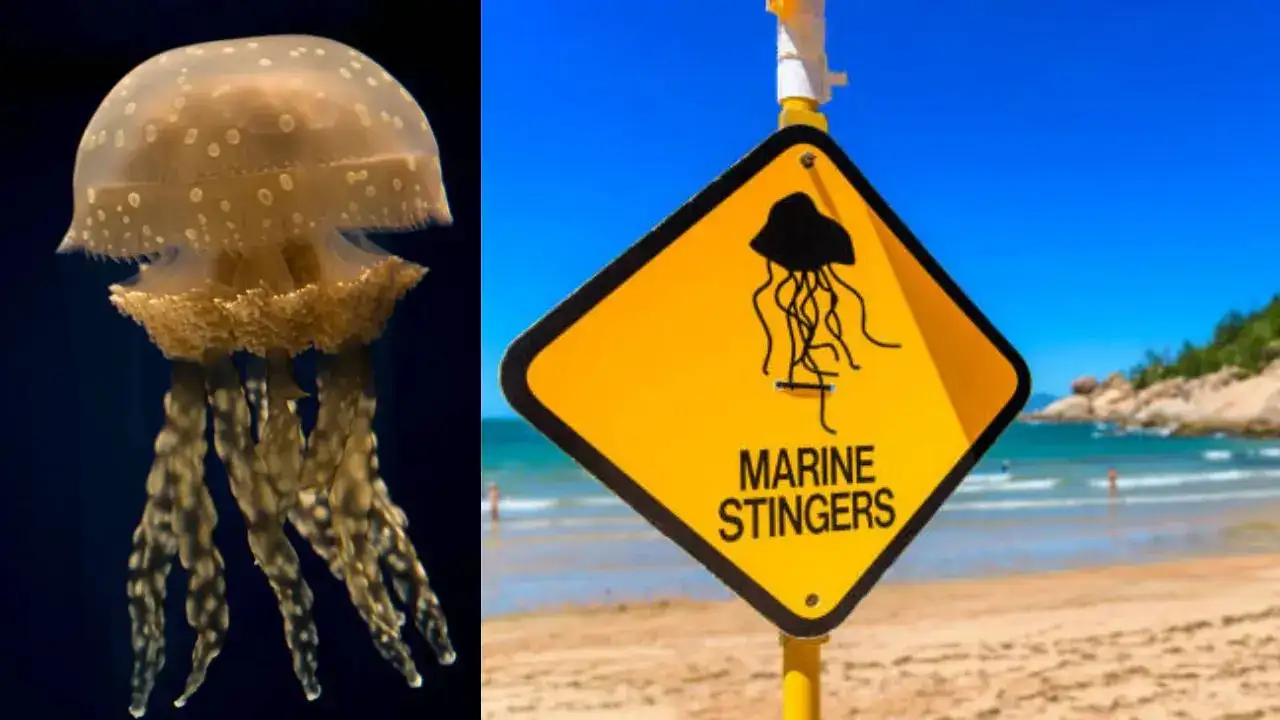
Highly venomous box jellyfish, known for their transparency and small size, sting people enjoying seawater
Summer vacations are just around the corner and most people are already booking tickets for their next beach vacation. However, experts are cautioning revelers to be careful of Irukandji Jellyfish – which can cause an extremely painful and potentially lethal condition with its sting.
There have been several instances of these highly venomous box jellyfish – known for their transparency and small size – stinging people enjoying seawater. On Instagram, a user described how her holiday was cut short in Cairns, Australia when her boyfriend suddenly started experiencing excruciating back and chest pain and became breathless after a short time in the sea. They later found he was experiencing symptoms of Irukandji syndrome.
And since there is no antidote for an Irukandji sting, the young man had to ride it out on painkillers in the hospital over two days.
Irukandji sting can cause cardiac arrest
However, according to experts, not everyone is so lucky as the impact of the sting is often too much on the average person’s heart and body. Doctors say the sting can lead to a fatal cardiac arrest along with other symptoms like symptoms like:
- Severe headache
- Backache
- Muscle pains
- Chest and stomach pain
- Nausea
- Vomiting
- Sweating
- Anxiety
- Hypertension or high blood pressure
- Tachycardia
Pulmonary edema or an abnormal buildup of fluid in the lungs, specifically in the air sacs, which causes breathlessness and reduced oxygen exchange
Doctors say that symptoms generally improve in four to 30 hours but may take up to two weeks to resolve completely.
How does a jellyfish sting lead to cardiac arrest?
According to experts, in a few severe cases, jellyfish stings cause cardiac arrest due to the release of toxins that disrupt heart function leading to a cascade of events, including muscle spasms, and potentially, heart failure.
Jellyfish tentacles inject venom, which has a variety of effects, including:
Cardiotoxins
These toxins disrupt the heart's rhythm and function, potentially leading to cardiac arrest.
Neurotoxins
These can cause muscle spasms and paralysis, which can contribute to respiratory failure and death.
Hemolytic
These toxins can cause the breakdown of red blood cells, leading to hyperkalemia (high potassium levels in the blood), which can also disrupt heart function.
Treatments for jellyfish stings
Similar to other stings - first aid for a jellyfish sting consists of flushing the area with vinegar to neutralize the tentacle stinging apparatus. According to doctors, for those with cardiac issues, nitroglycerin – a common drug can be used to minimize the risk of pulmonary edema and reduce hypertension.
Also, antihistamines can benefit from pain relief, but most cases require intravenous opioid analgesia. Also, Fentanyl or morphine is used to relieve pain.
Many doctors also recommend using Magnesium sulfate or Epsom salts for the treatment of Irukandji syndrome after being successfully used in one case. Evidence, however, suggests, according to a later report - a series of three patients failed to show any improvement with magnesium and it is mostly used for experimental status.
Where are Irukandji jellyfish found?
Experts say Irukandji jellyfish are mostly distributed in the warm waters along the northern coasts of Australia – especially in the Coral Sea along Queensland - with some species occurring in parts of the tropical Atlantic, Indian, and Pacific oceans.
Get Latest News Live on Times Now along with Breaking News and Top Headlines from Health and around the world.


